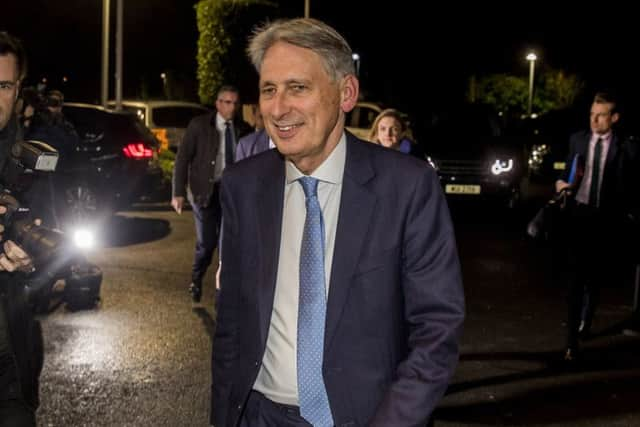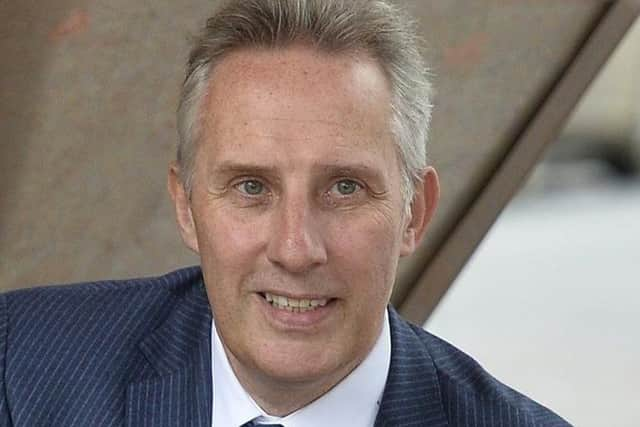Brexit: Ian Paisley calls on government to bin the backstop
and live on Freeview channel 276
Ian Paisley was responding to comments made by Chancellor Philip Hammond about government analysis which suggests the UK will be economically poorer under any version of Brexit, but much worse off if it crashes out of the EU with no deal.
According to the official figures, produced by officials from several Whitehall departments including the Treasury, the Department for Exiting the EU, Industry, Environment, International Trade and the Home Office:
Advertisement
Hide AdAdvertisement
Hide Ad• Withdrawal from the European Union under the government’s plans could cut the UK’s GDP by up to 3.9% over the next 15 years;


• Leaving without a deal could deliver a 9.3% hit to GDP over the same period.
The document did not put a cash figure on the potential impact on the economy, but independent experts have said that 3.9% of GDP would equate to around £100 billion a year by the 2030s, far outweighing the UK’s current contribution to EU budgets.
Meanwhile, the Long-Term Economic Analysis paper found that government borrowing could be forced up by as much as £119 billion by 2035 if the UK quit the EU without a deal, and up to £26.6 billion under a scenario similar to Mrs May’s plans.
Advertisement
Hide AdAdvertisement
Hide AdThe government figures suggest Northern Ireland, the North East, North West and West Midlands would be hardest-hit by a no-deal Brexit.


The 83-page document was released as Prime Minister Theresa May continued to tour the UK to promote her deal to voters ahead of the crucial House of Commons vote on December 11.
On Wednesday Mr Hammond acknowledged that all possible Brexit options will make the UK poorer in economic terms, compared with remaining in the EU. But he insisted that the PM’s plan – agreed by EU leaders at a Brussels summit last Sunday – would “minimise” the economic damage.
Reacting to the analysis, Sinn Fein’s Northern Ireland leader Michelle O’Neill claimed it “confirms the absurdity of the DUP’s position on Brexit” and called on the party to “accept that, while there is no good Brexit, the withdrawal agreement is the least worst option available”.
Advertisement
Hide AdAdvertisement
Hide Ad“Brexit is economic vandalism and it beggars belief that the DUP is still prepared to crash our economy in pursuit of a reckless unionist agenda,” she said.
Responding, Mr Paisley said: “Sinn Fein have accepted the chancellor’s analysis and so are knowingly canvassing support for something which would damage our economy.
“The choice is not between this deal and no deal. Others may wish to give up, but the DUP wants to see a better way forward and an agreement that can benefit all parts of the United Kingdom.”
Arguing that Mr Hammond’s comments “highlight the need to seek a better deal”, the North Antrim MP continued: “Once again the public are being faced with a false choice when the chancellor frames his economic predictions between either the withdrawal agreement as it currently stands or leaving the EU with no deal.
Advertisement
Hide AdAdvertisement
Hide Ad“What the chancellor does recognise, however, is that the withdrawal agreement is not good for the United Kingdom. Last week the chancellor admitted the backstop is bad for the economy and bad for the Union. There is no enthusiasm for this deal and it appears destined to be rejected by Parliament.
“Now is the time to look beyond the current deal, to bin the backstop and work on finding a better way forward. This process could commence now instead of waiting until after the House of Commons has its say and the government is then directed to think again. It’s time to grasp the nettle and seek a better way forward.”